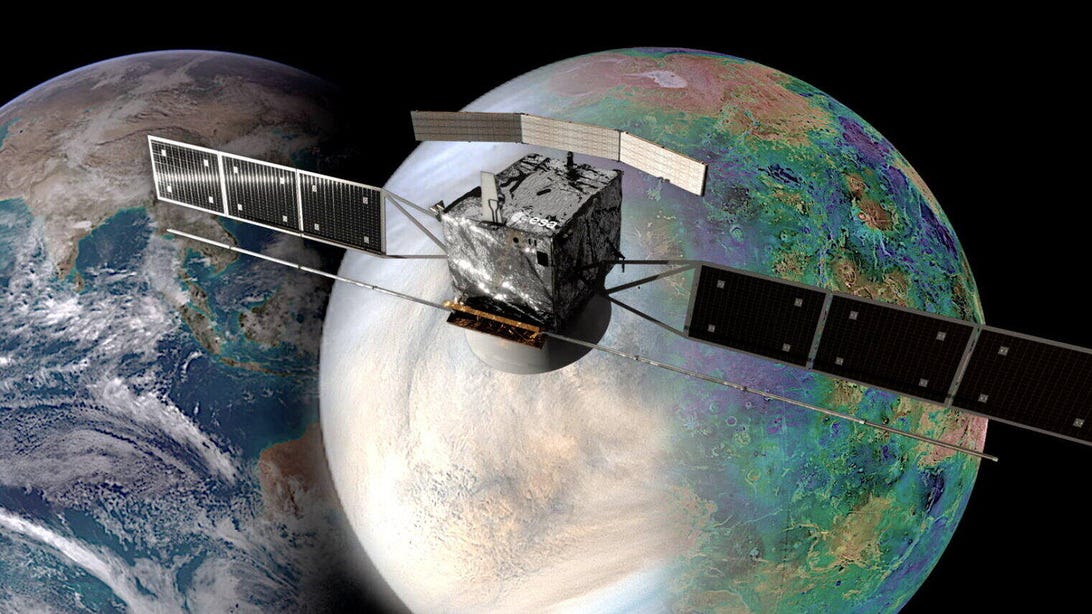
Earth and Venus aren't really this close to each other. This illustration shows the EnVision spacecraft, which will look into how the two planets developed so differently from each other.
NASA / JAXA / ISAS / DARTS / Damia Bouic / VR2PlanetsMars who? Hot on the heels of NASA announcing two new Venus missions, the European Space Agency is hopping on board the Venus train by giving the go-ahead to its own mission, called EnVision.
Earth and Venus have been called twins, but Earth grew up into a life-friendly water world while Venus became an inferno of a planet with sulfuric acid clouds. EnVision will provide "a holistic view of the planet from its inner core to upper atmosphere to determine how and why Venus and Earth evolved so differently."
ESA isn't going it alone. NASA will be a collaborator and provide a radar instrument called Vensar to make high-resolution measurements of the planet's surface. EnVision will also monitor atmospheric gases, analyze the surface composition and look for signs of active volcanoes.
Venus' atmosphere is a particularly intriguing study target after a 2020 paper suggested the gas phosphine -- which sometimes has a biological origin -- may be present in the planet's clouds. Another spacecraft, BepiColombo, en route to Mercury, even stopped by to take some measurements in late 2020. Researchers are wondering if Venus once was habitable, or might even host some form of microbial life now.
NASA aims for Venus: See what the inferno planet looks like
See all photosNASA's own Veritas and Davinci+ missions are targeting a 2028 to 2030 launch, while ESA is looking at the early 2030s for takeoff for EnVision. The next step in development is to finalize the designs of the spacecraft and its science instruments.
"Together with the newly announced NASA-led Venus missions, we will have an extremely comprehensive science program at this enigmatic planet well into the next decade," said ESA director of science Günther Hasinger in a statement on Thursday.
It's not just NASA and ESA that are in on the Venus action either. The Japanese Space Agency, JAXA, have a spacecraft in orbit around the hellacious planet known as Akatsuki. It is designed to study the atmosphere of Venus and was launched back in 2010.
Mars doesn't need to worry. There's plenty of planetary love to go around.
Follow CNET's 2021 Space Calendar to stay up to date with all the latest space news this year. You can even add it to your own Google Calendar.
from CNET https://ift.tt/3zlcLew
via IFTTT



No comments:
Post a Comment